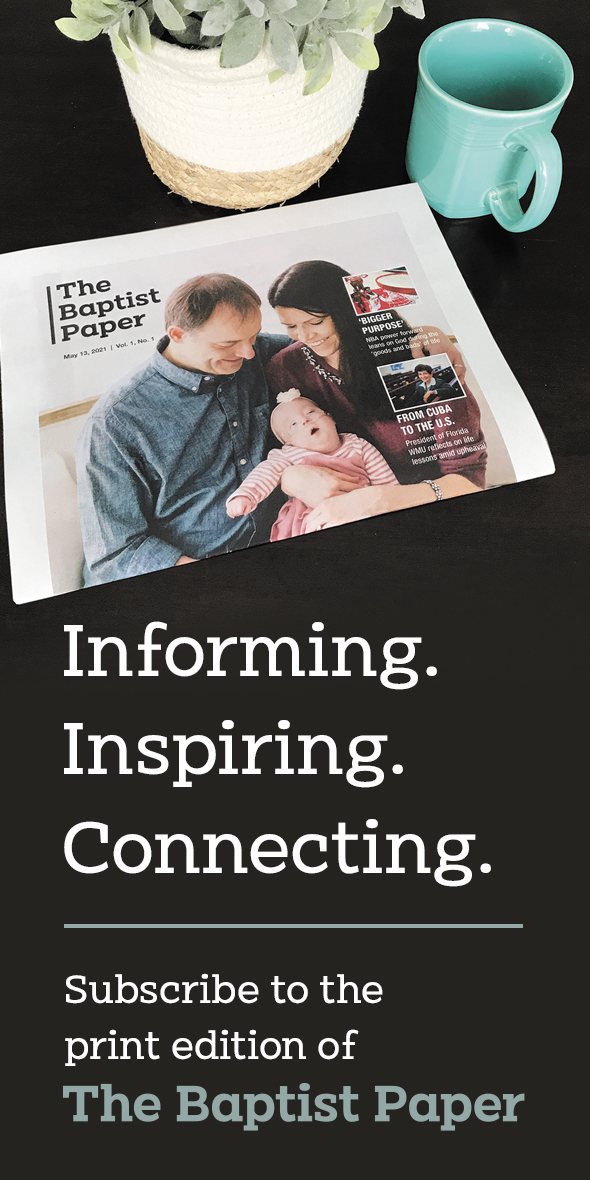Humble Beginnings
Micah 4:6–8; 5:1–9
In that day (4:6–8)
In chapters four and five, Micah’s prophecy moves seamlessly between the distant and near future, possibly even between the first and second advents of the Messiah. Micah 4:1–8 picks up where chapter 3 ended at Mount Zion. Micah points to the end of the age when the temple’s mountain, reduced to a field of brambles after Jerusalem’s defeat and exile, will be raised in high honor with nations streaming to it. Peace will reign, implements of war will be repurposed as implements for farming, and nations will look to Yahweh for social, moral and religious truth.
Most importantly, Judah will lead the nations in honoring the Lord in all facets of national life. God will graciously regather and restore Judah out of Babylonian exile. They will again be a sovereign nation, and their enemies will be given over to them to thresh as God’s judgment on the nations (9–13).
One will come (5:1–6)
Micah prophesies a coming siege upon Jerusalem that will devastate the city and abuse its ruler. Scholars disagree on the identity of the ruler struck on the cheek during the siege. Some identify Hezekiah, who ruled Judah in Micah’s day. In 701 B.C., Sennacherib of Assyria invaded Judah and besieged Jerusalem, but was unable to conquer it and capture Hezekiah, although he did extract a humiliating tribute from him. This siege terrified Hezekiah and the people, but it failed due to God’s miraculous intervention (2 Kings 19).
Other scholars apply this reference to the future king Zedekiah, who was captured by the Babylonians when Jerusalem fell in 586 B.C. Of particular interest is its application to Christ, although Isaiah 50:6 seems more apropos.
In the midst of dire circumstances, the people will feel the Lord has abandoned them. However, a new kind of leader will arise who has ties to the past. He will lead the people in a time of restoration and peace.
The unmistakable messianic overtones in these verses include Davidic origins, leading as a shepherd in the strength of Yahweh, the reunification of Israel and Judah, the extension of peace to the whole earth and standing powerfully against any invading enemies. Prophecies frequently have multiple referents or initial and final fulfillments. The reference to a ruler out of Bethlehem Ephrathah clearly refers to Christ. Herod’s advisers interpreted it thus, and even Jewish interpreters have taken it to be messianic.
There is seamless prophetic flow between Christ’s two comings, for Israel was not immediately restored upon the Messiah’s appearance, a point that caused confusion among Jesus’ disciples. Rather, Jesus’ first advent inaugurated a new age that will see a spiritual revival and restoration of Israel to the Lord and to covenant blessings at the end with His second advent.
The miraculous deliverance of Jerusalem in 701 BC — when God struck down 185,000 Assyrian soldiers in a night — prefigures the deliverance and restoration of Israel in the messianic kingdom. The Messiah will be their peace, a characteristic usually reserved for God.
Then the remnant (7–9)
Micah continues describing restored Israel in the messianic age as politically and militarily strong. She will be a blessing to her allies, but a ravaging lion against her foes. Chapter five closes by shifting back to the present (8th century). Judah is threatened by Assyria because of their unfaithfulness; but God will cleanse them of idolatry of all kinds.
By Stefana Dan Laing
Associate professor at Beeson Divinity School in Birmingham, Alabama










